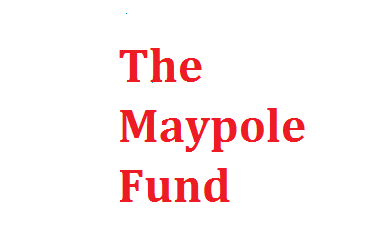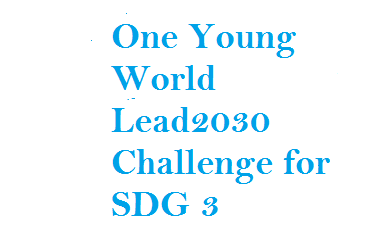- Six Reasons To Bring Millets To The Market!
- Hong Kong Court Makes Landmark Ruling Protecting Transgender Rights
- Substrate Promiscuity Of Fungi Generated Enzyme Laccase Shows Potential In Degrading Industrial Dye Effluents
- Union Minister Of Rural Development Holds A Meeting On ‘Cactus Plantation And Its Economic Usage’
- Ministry Of Tribal Affairs Organised One Day Mega Health Camp ‘Abua Bugin Hodmo-Our Better Health’ At Saraikela Kharsawan, Jharkhand
- Blue Flag Standards For Beaches In The Country
- India-Namibia Sign An MoU On Wildlife Conservation And Sustainable Biodiversity Utilization
- Hydrophobic Ingredients, In Combination With Obsolete Antibiotics, Can Counter Multidrug-Resistant Bacteria
- Promoting Cultivation Of Kala Namak Paddy
World Consumer Rights Day; Indians Know Your Consumer Rights!
Posted by: 2022-03-15 02:57:08 ,By Admin
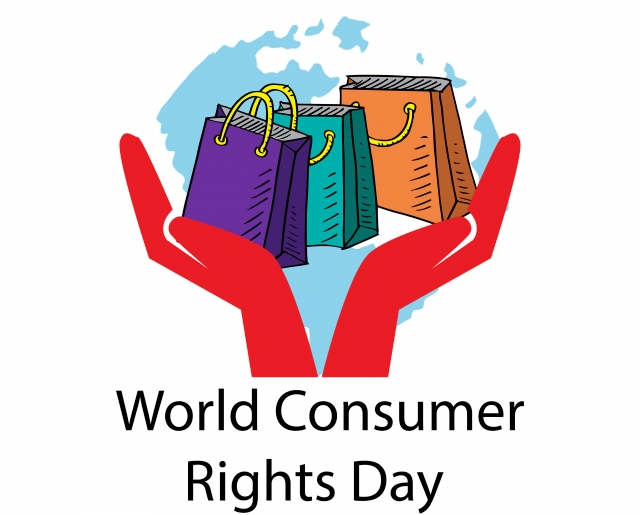
Every year on March 15th, the consumer movement celebrates World Consumer Rights Day to raise global awareness of consumer rights and demands. The day marks an opportunity to urge that all consumers’ rights be recognised and safeguarded, as well as to protest market abuses and social injustices that jeopardise those rights.
This year the International Consumer Rights Day will be celebrated on the theme of “Fair Digital Finance.” The Department of Consumer Affairs will commemorate this day with multiple events being held in New Delhi.
World Consumer Rights Day is inspired by President John F Kennedy’s special message to the US Congress that was delivered on 15th March 1962. In this message he formally addressed the issue of consumer rights becoming the first world leader to do so.
The consumer movement first marked that date in 1983 and now uses the day every year to mobilise action on important issues and campaigns.
Indians Know your Rights!
The Consumer Rights in India include;
- Right to Safety; To be protected against the marketing of goods and services, which are hazardous to life and property. The purchased goods and services availed of should not only meet their immediate needs but also fulfil long term interests.
- Right to be Informed; Right to be informed about the quality, quantity, potency, purity, standard and price of goods so as to protect the consumer against unfair trade practices.
There is a website: Consumerdaddy.com, for the purpose of empowering the consumers with the right to information.
- Right to Choose: To be assured, wherever possible of access to a variety of goods and services at a competitive price. In the case of monopolies, it means the right to be assured of satisfactory quality and service at a fair price.
- Right to be Heard: Meaning that consumers’ interests will receive due consideration at appropriate forums. It also includes the right to be represented in various forums formed to consider the consumer’s welfare.
- Right to Seek redressal: To seek redressal against unfair trade practices or unscrupulous exploitation of consumers. It also includes the right to fair settlement of the genuine grievances of the consumer.
- Right to Consumer Education: To acquire the knowledge and skill to be an informed consumer throughout life. Ignorance of consumers, particularly of rural consumers, is the main cause behind their exploitation.
In addition to this, the International Consumer Rights Committee recognises two more rights for consumers, globally. These are;
- The Right to satisfaction of basic needs; To have access to basic, essential goods and services: adequate food, clothing, shelter, health care, education, public utilities, water and sanitation.
- The right to a healthy environment; To live and work in an environment that is non-threatening to the well-being of present and future generations.
In India, the amended Consumer Protection Act, 2019 came into force on 20th July 2020 to empower consumers and help them in protecting their rights through its various notified rules and provisions.
The act establishes the Central Consumer Protection Authority (CCPA) whose primary objective will be to promote, protect and enforce the rights of consumers. The CCPA may impose a penalty on a manufacturer or an endorser of up to Rs 10 lakh and imprisonment for up to two years for a false or misleading advertisement. In case of a subsequent offence, the fine may extend to Rs 50 lakh and imprisonment of up to five years.
Moreover, in order to facilitate consumers in filing their complaints online, the Central Government has set up the E-Daakhil Portal.
Protection Against the Digital Fraud – National Consumer Helpline & RBI
Due to the rising number of cyber fraud complaints on the National Consumer Helpline (NCH), the Consumer Affairs Ministry tied up with its Home, Finance and IT/Telecom counterparts in 2021 to improve the cyber fraud redressal mechanism on the NCH.
The consumers can seek help on national helpline 155260 under the Home Ministry where people can report cases of cyber fraud.
The Government provides has notified Rules on E-commerce and Unfair Trade Practices, under which all E-commerce entities are required to provide information to consumers, relating to return, refund, exchange, warranty and guarantee, delivery and shipment, modes of payment, grievance redressal mechanism, payment methods, security of payment methods, charge-back options and country of origin.
Moreover, all E-commerce companies have a grievance officer as directed by the IT Act, whose details are available on the company website. The arbitration policy of the e-commerce company can help solve the issue.
The NCH provides Consumers with more details about various modes of digital payments like BHIM, BHARAT QR, IMPS, Debit cards.
In August 2016, a three-tier quasi-judicial process called Consumer Fora was established under the provisions of the Consumer Protection Act of 1986, where consumers can make a complaint against any unfair trade practices, including those on e-commerce.
Simultaneously, the website www.consumerhelpline.gov.in was created to give consumers a place to record their grievances.
In case of fraudulent transactions or digital payment based exploits, NCH advises a customer should file a First Information Report (FIR), submit a police complaint, or report it to the Cyber Cell.
The consumers can submit a complaint with NCH by calling 1800-11-4000 or 14404, or by sending an SMS to 8130009809. There is also the option of filing complaints online via the NCH website or the APP.
Moreover, the Reserve Bank of India has introduced an Ombudsman Scheme for Digital Transactions. It is an expeditious and cost-free mechanism for the resolution of complaints regarding digital transactions undertaken by customers of the System Participants as defined in the Scheme.
The purpose of the scheme is to improve the level of customer service and serves as a complaint redressal mechanism relating to deficiency in customer service in digital transactions conducted through non-bank entities that are regulated by the Reserve Bank.
Consumers, Keep this in Mind!
NCH also guides that Consumers should maintain papers, documents – bills, warranty cards, agreement copies, brochures, working manuals, and so on carefully for any future redressal in case of fraud.
In addition to this, various Consumer Organisations (mentioned below) are functional in India that provide help against violation of Consumer Rights.
- Akhil Bhartiya Grahak Panchayat
- Consumer Guidance Society of India
- All India Consumer Protection Organization
- The Consumers Eye India
- United India Consumer’s Association
- Grahak Shakti Bengaluru – Karnataka
- Consumer Awareness, Protection, and Education Council
- The Consortium of South India Consumer Organisations
Read more: Click Here
You may like similar news

Uganda shortens school term by two weeks to curb Ebola
KAMPALA, Nov 8 (Reuters) - Uganda will shorten the school term by two weeks to reduce daily contact ...

Education takes flight under Ghanaian artist's repurposed planes
TAMALE, Ghana, July 20 (Reuters) - Hundreds of meters above the village of Jenakpeng in northern Gha...
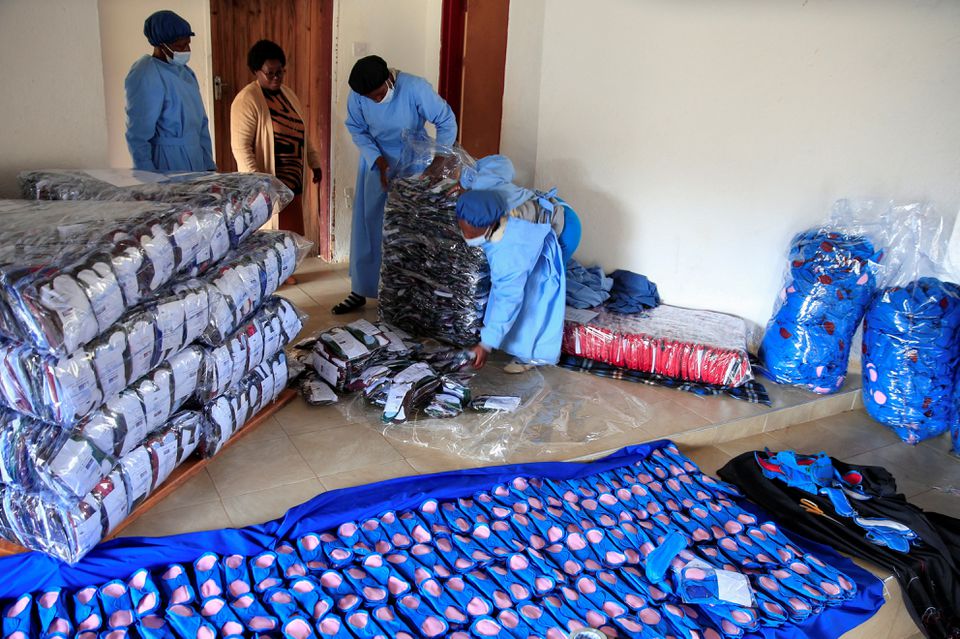
Zimbabwean women sew sanitary pads to help keep girls in school
MUTASA DISTRICT, Zimbabwe, July 19 (Reuters) - A community group in rural Zimbabwe is making reusabl...
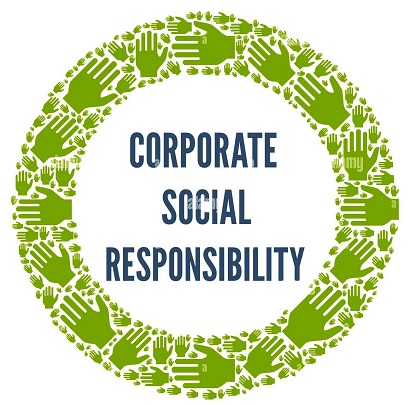
60% CSR spent on rural needs, health care, education in last 7 years
Around 60 per cent of the total CSR funds spent by companies in the last seven financial y...
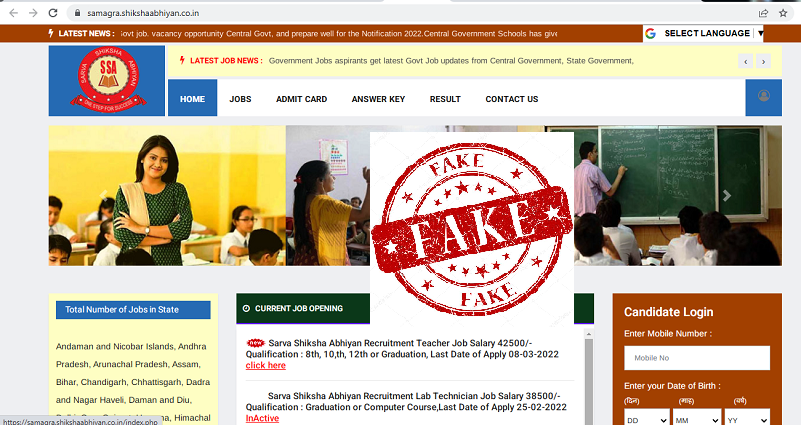
Clarification regarding fake websites- Ministry of Education
It has come to the notice of the Ministry of Education that in order to dupe innocent applicants sev...


